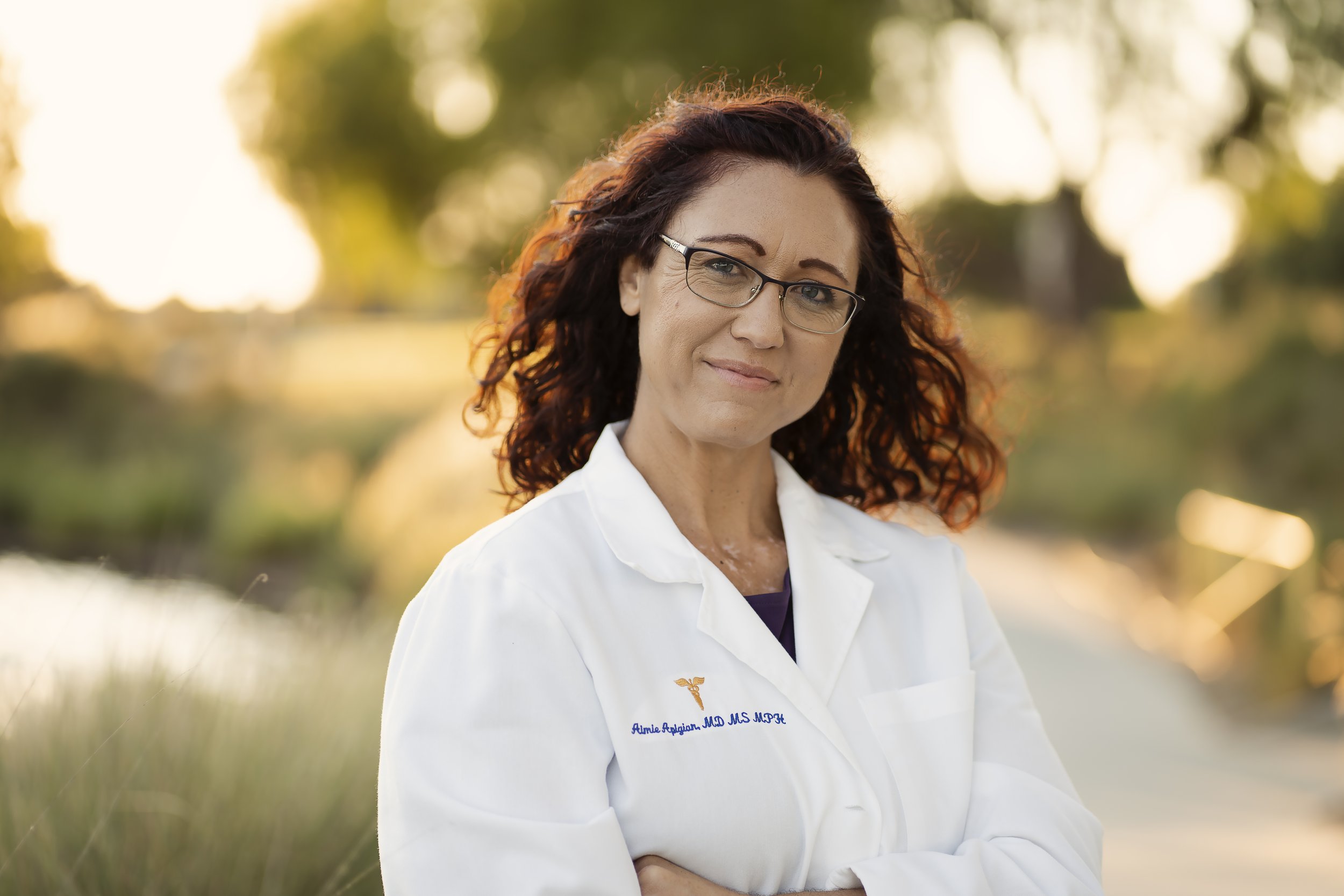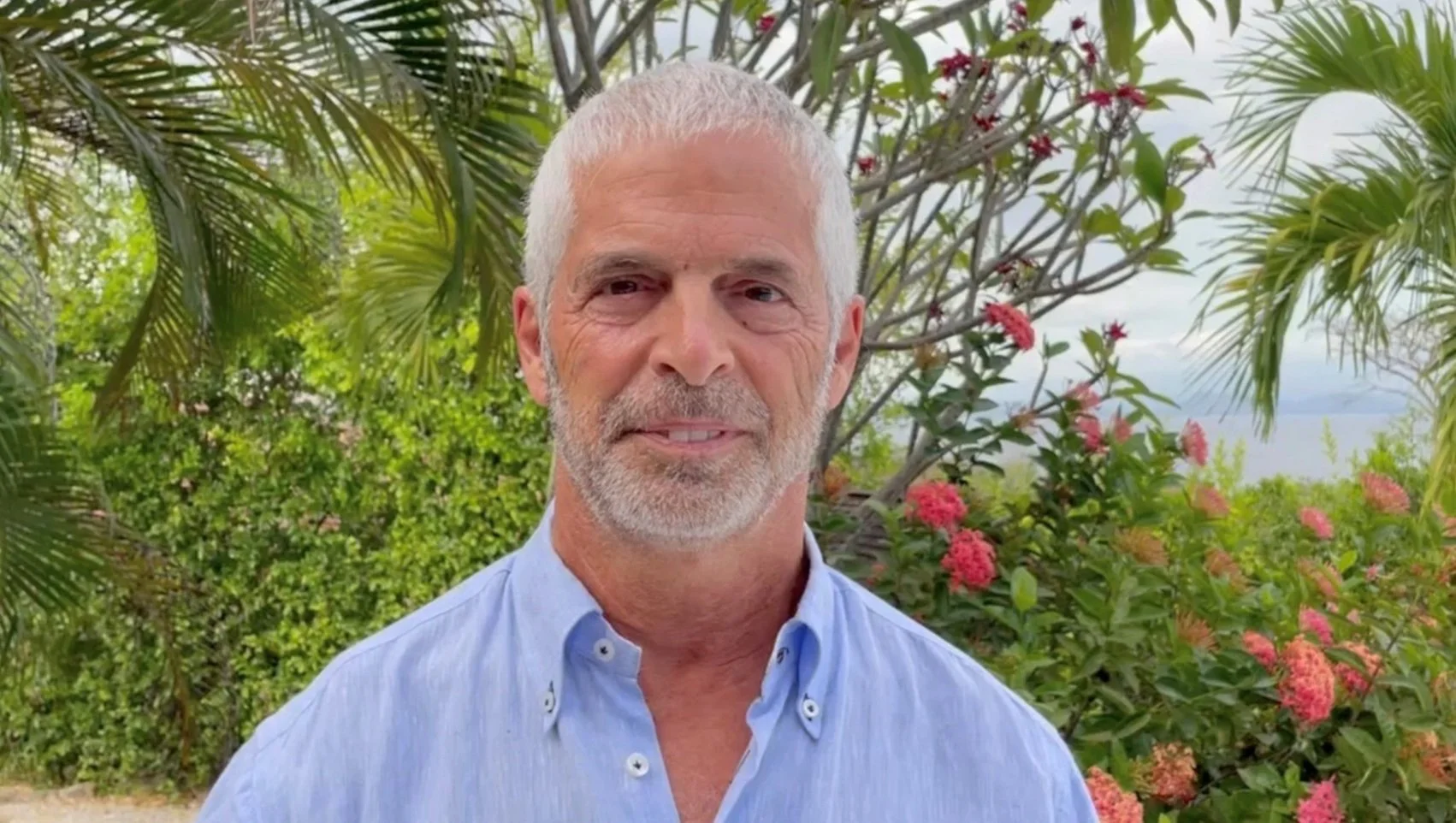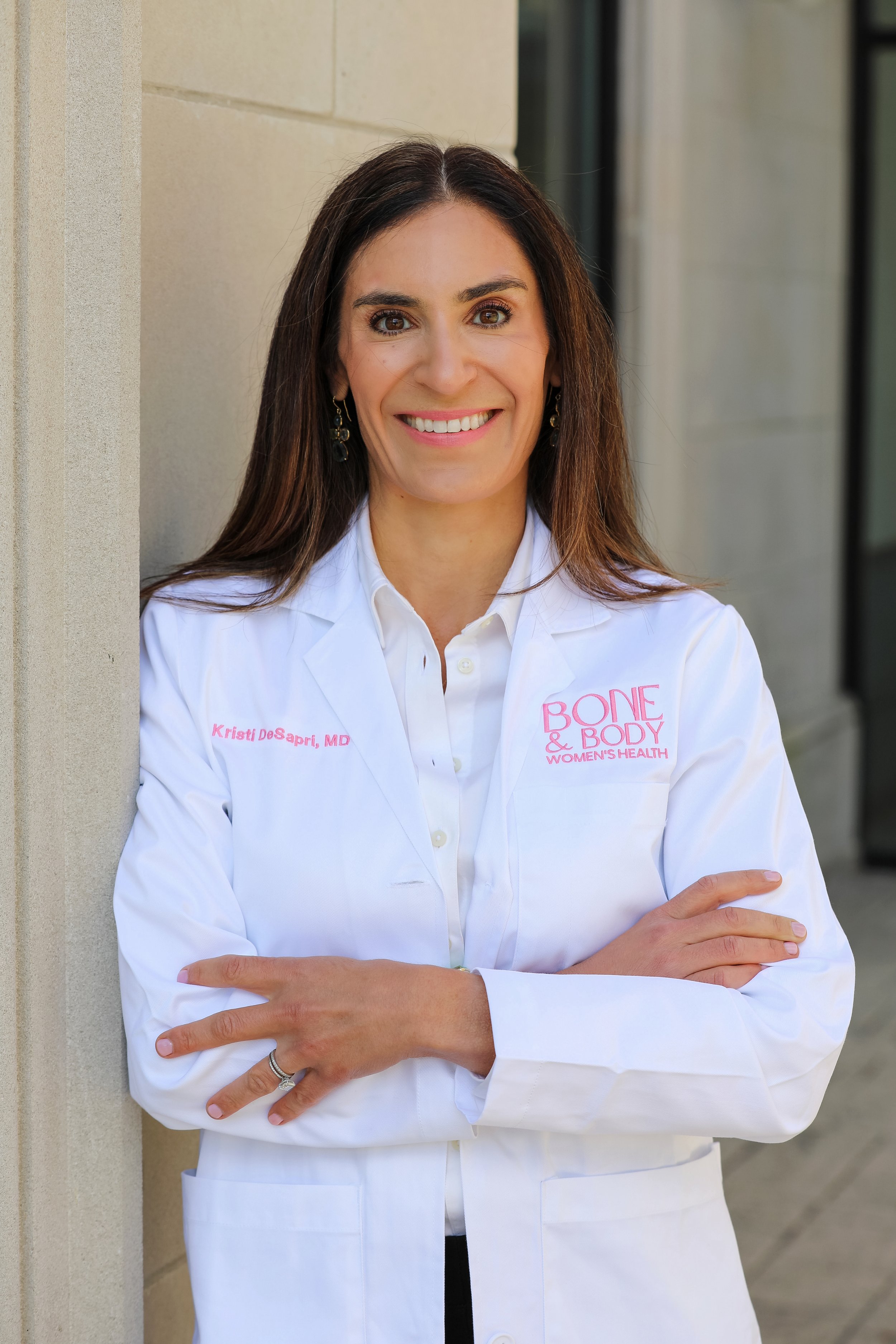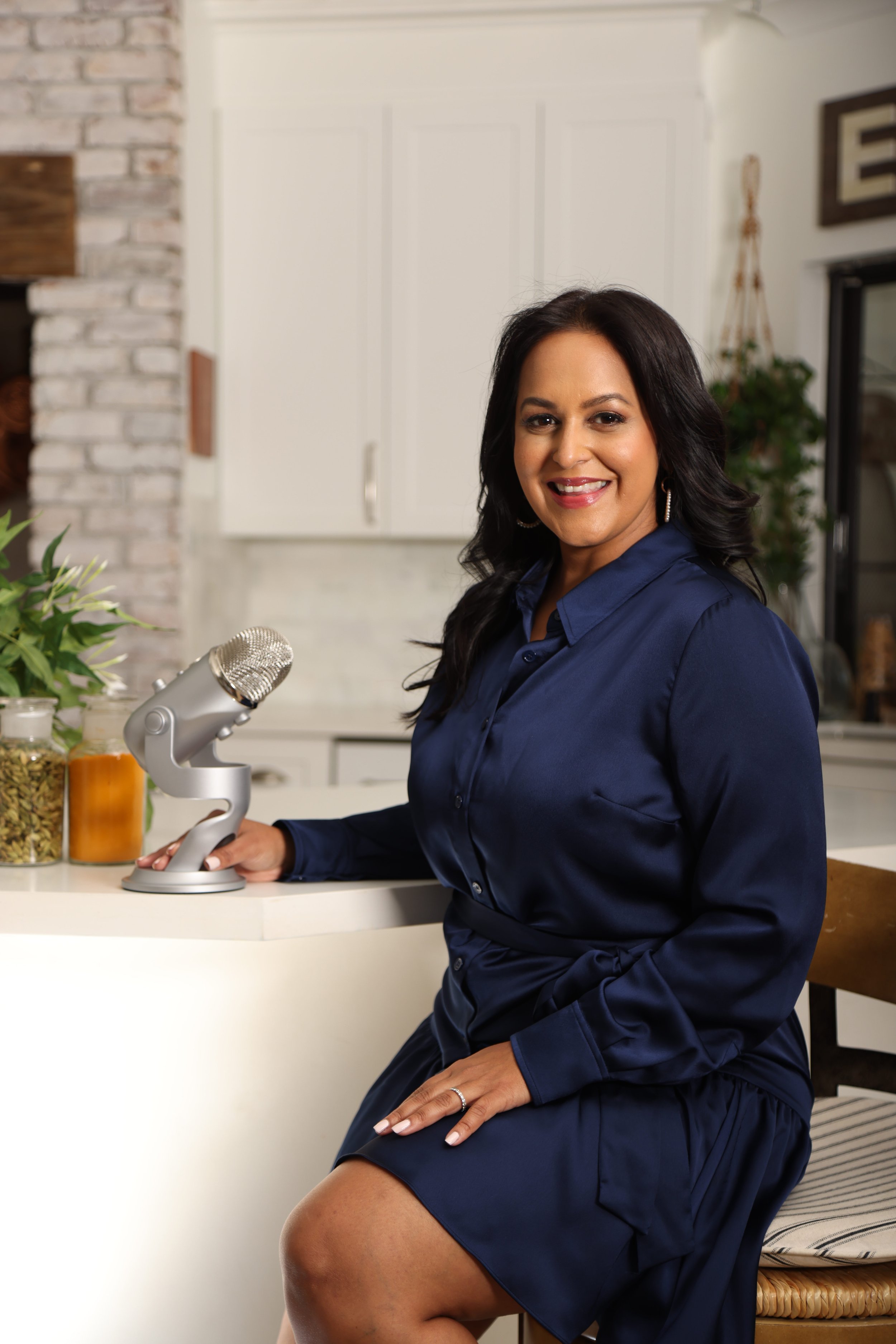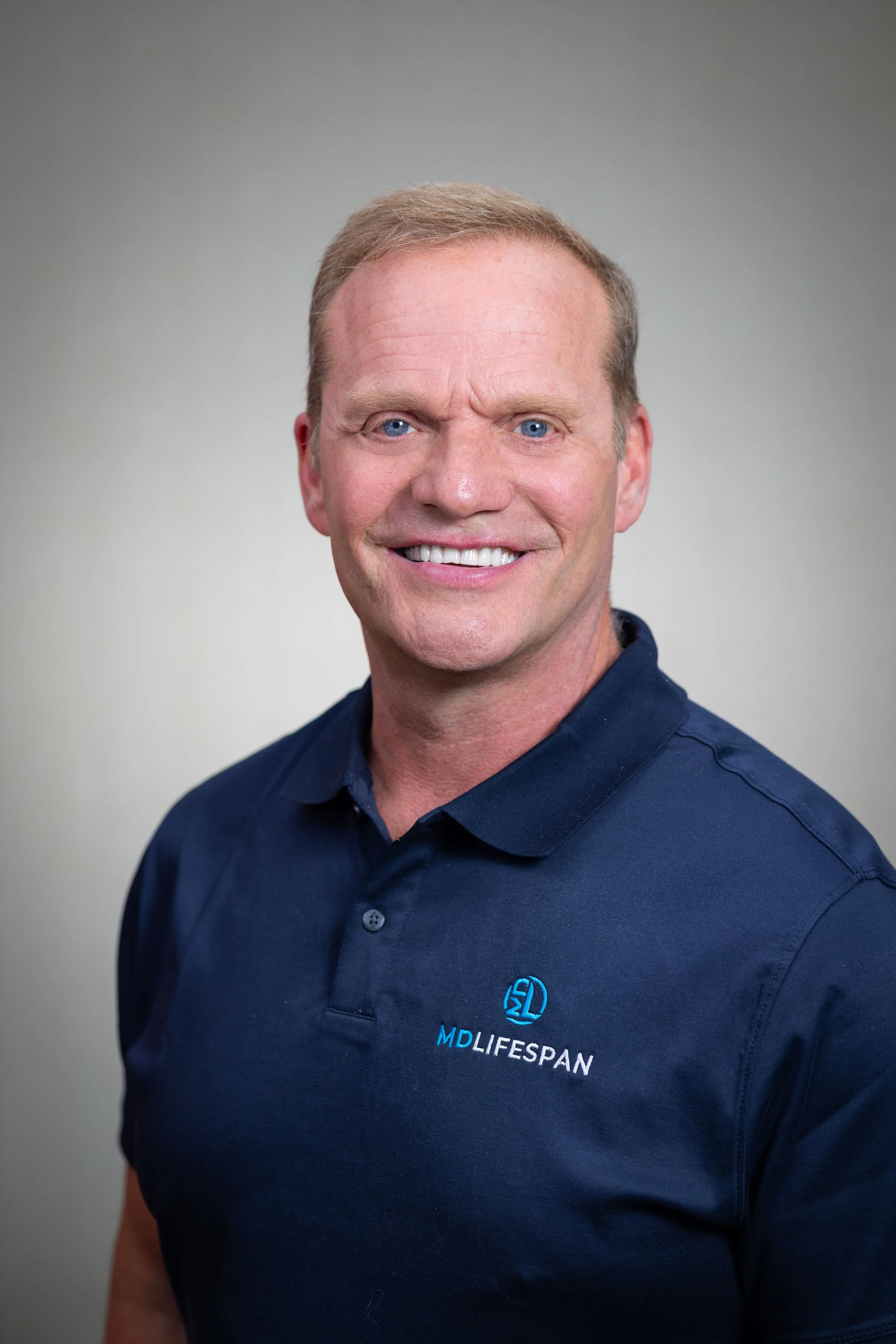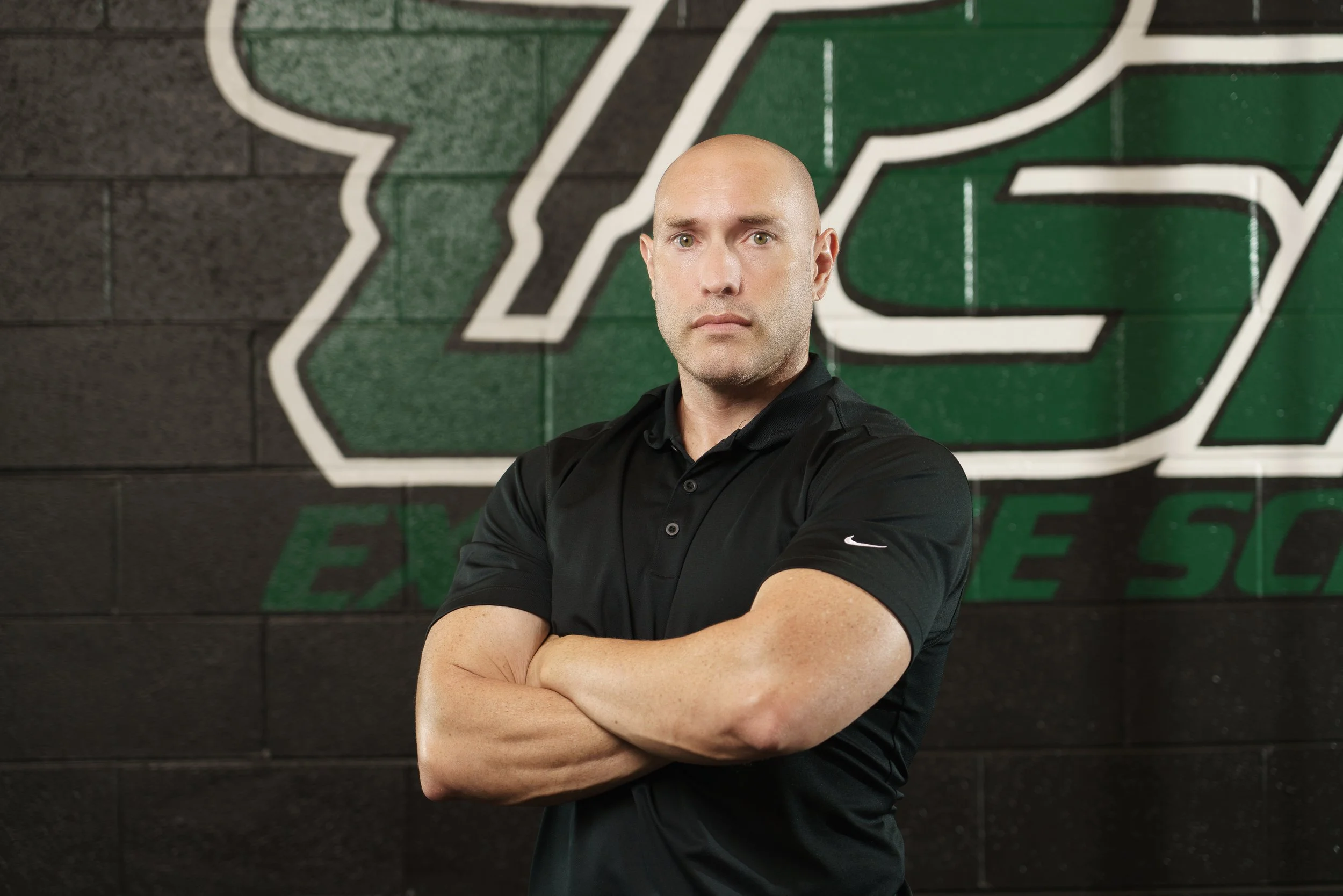Skincare Health For Midlife Women- #77
Have you noticed sagging skin, dry skin, dark spots, changes in volume, acne, or brightness of your skin? Welcome to another chapter in your menopause life. Just like in the world of nutrition, skin care health is just as saturated with noise on what to do and what not to do for your skin. In this episode, you will understand what your skin is made of, how to promote collagen and elastin production, why skin health degrades as you age, what nutrients your skin needs, what optimal morning and evening skincare routines should look like, and the best products to use (both over-the-counter and medical-grade).
Dr. Lady Dy has returned to the Health Trip Podcast to share the science on aging women’s skin health. We discuss the impact of nutrition, hormones, stress, sun, and alcohol on midlife women’s skin health. She also shares which products to use, how to budget, and how to know that you are using a product that works amidst the marketing noise.
Dr. Dy is board-certified in both Dermatology and Dermatopathology. With 20 years of expertise in her field, Dr. Dy founded Dy Dermatology Center. She held several positions simultaneously at Rush University Medical Center in Chicago. Check out episode #77 on the Health Trip Podcast.
Read More
Optimizing Your Emotional and Mental Health During Menopause - #76
Two of the most common symptoms during the menopause journey are increased levels of anxiety and depression. The decline of women’s sex hormones creates a plethora of adverse effects, such as weight gain, insomnia or fragmented sleep, hair loss, loose skin, loss of lean muscle mass, brain fog, night sweats, loss of libido, vaginal dryness, and more. These devastating changes are driving women to feel frustrated, confused, and depressed about their current state of health, including how they look and feel.
Psychiatrists prescribe psychopharmacology to their patients and most leave it at that. What if there was a psychiatrist who also prescribed healthy lifestyle behavior modifications alongside medication? My next guest practices something called cosmetic psychiatry and it’s fascinating. Dr. Andreea Seicean, MD, PhD, MPH, is the Clinical Director of Like MySelf Wellness. She is an ABPN Board-Certified Adolescent and Adult Psychiatrist, clinical investigator, scientist, and Professor. She completed her training at Case Western Reserve University, the Cleveland Clinic, and the University of Illinois at Chicago (UIC). Her PhD is in epidemiology and biostatistics and she’s an expert in outcomes, cost-effectiveness, and quality improvement. Listen in to episode #76 on the Health Trip Podcast to learn more.
Read More
Heart Disease Risk and Midlife Women - #75
According to the CDC, over 60 million women in the United States are living with some form of heart disease. Heart disease and stroke cause 1 in 3 deaths among women each year – more than all cancers combined. According to the British Heart Association: after menopause your cholesterol levels can go up, increasing your risk of heart attack and stroke. Your body cannot control sugar levels (glucose) as well – this can increase your risk of diabetes, high blood pressure, and weight gain, which we know as metabolic syndrome.
As women move through the menopause transition, it has been shown that as estrogen levels decline, a woman’s CVD risk may increase. Estrogen is heart protective and more is being done to educate and screen women to see if they are good candidates for MHT. But, still, so many women remain confused, and overwhelmed, by the barrage of information on the internet, the misinformation, or lack of information, provided by their doctors, and their current fear-based understanding of taking MHT and getting breast cancer.
On this episode of the Health Trip podcast, Dr. Michael Davidson, MD, joins me to break down advanced lipid testing for women. He is board-certified in internal medicine, cardiology, and clinical lipidology. He’s a Professor of Medicine, Director of the Lipid Clinic at The University of Chicago Pritzker School of Medicine, and earned his medical degree from The Ohio State University College of Medicine and completed his residency and fellowship in cardiology at Rush University Medical Center in Chicago. An active researcher, Dr. Davidson’s clinical research background encompasses pharmaceutical and nutritional clinical trials. His extensive research on statins, novel lipid-lowering drugs, and nonpharmacologic risk factor reduction have established him as a world opinion leader.
Read More
Optimize Your Lymphatic System During Menopause - #74
The lymphatic system is the sewer system of our body and we’d be dead without it. It’s responsible for clearing out toxins, waste, bacteria, and water from our body that build up in our tissues. The connection between a healthy lymphatic system and the menopause transition is explained by Dr. Christine Schaffner, ND, on the Health Trip Podcast. Dr. Schaffner shares her expertise in understanding the many benefits of moving lymph throughout our body and supporting a midlife woman’s journey through menopause. Hormonal fluctuations, a poor diet, and living a sedentary lifestyle during midlife can affect the way the lymphatic system works. Dr. Schaffner breaks down the science into visual and tangible components keeping the listener engaged.
Read More
Enhance Your Sleep Through Ayurvedic Medicine - #73
According to the NIH, the overall prevalence of sleep disorders among postmenopausal women was 51.6%. About a third of women’s lives around the world are affected by disrupted sleep and menopause, and both of these have a large effect on their health. Sleep disturbance is a significant issue for midlife women and poor sleep has been shown to increase a woman’s risk for Alzheimer’s Disease, cancer, metabolic disease, and heart health. Learn about the stages of sleep, how all of your senses affect sleep, and what strategies, supplements, and Ayurvedic modalities support deep and restorative sleep for you.
Deepa Kanaan, is an Allied Functional Medicine Practitioner, Ayurvedic Practitioner, Author, and a Yogini at OHA Health. Deepa joined the Health Trip Podcast to share her expertise in sleep quality and Ayurvedic modalities. She offers easy-to-use Ayurvedic strategies and supplement education around restorative sleep. articles have been shared by Dr. Mark Hyman, MD. She is the author of the book How To Sleep Better-The Miraculous 10-Step Protocol To Recharge Your Mind & Body.
Read More
Healing Stored Trauma During Menopause - #72
Most of us are walking around with stored trauma in our bodies. Stored trauma increases bodily inflammation and chronic stress, and impacts your sleep quality, gut health, and hormonal balance. Midlife and menopause are hard enough, but if you are dealing with stored trauma on top of that, it makes for a much more complicated journey.
Dr. Aimie Apigian, a double Board-Certified Physician in Preventive and Addiction Medicine with double Master's degrees in Biochemistry and Public Health, is at the forefront of trauma and health. She combines her training across functional medicine, attachment, and trauma therapy to bring the Biology of Trauma® lens to the world, where she shows the difference between stress and trauma to the body and not just how trauma becomes our biology, but how our own biology keeps us stuck in chronic trauma patterns. Her journey as a foster and adoptive parent, coupled with her personal experience of chronic health issues, infuses her work with profound empathy and practical tools.
Read More
Midlife Women and Autoimmune Diseases - #71
Women have a fourfold increase in risk of autoimmune disorders than men and 80% of the people who have autoimmune issues are women. Some autoimmune disorders are triggered during the perimenopausal through postmenopausal time frame (30-60 years of age). While more research is needed, it is proposed that sex hormones, the microbiome, environmental factors, and the X chromosome may be very much connected to autoimmune disorders in women. It is broadly known and accepted by many functional medical doctors, but not so much in the conventional healthcare model, that consuming gluten causes a leaky gut that leads to gut dysbiosis that can then lead to chronic inflammation and autoimmune disorders.
Should midlife women stop eating gluten during the menopause transition and beyond? Would doing that support better skin, brain health, gut health, weight loss, healthy hair growth, and heart health? Let’s find out.
My guest is Dr. Tom O’Bryan, who comes with many accolades- too many to list. Here are some highlights: He is a doctor of chiropractic and clinical nutritionist a member of and on the teaching faculty board of The Institute for Functional Medicine, the International & American Associations of Clinical Nutritionists, the American Chiropractic Association, and the International Academy of Preventive Medicine. He is a recognized world expert on gluten and its impact on health. He is an internationally recognized and sought-after speaker and workshop leader specializing in the complications of Non-Celiac Gluten Sensitivity, Celiac Disease, and the development of Autoimmune Diseases.
Read More
Pilates For Your Menopause Journey - #70
Exercising during midlife is crucial to a woman's longevity plan. Fragility fractures are fractures resulting from a fall from standing height or less. These fractures, which most commonly occur at the hip, spine, or wrist, are an indication that the body's bones have been weakened by an underlying illness, mostly due to osteoporosis. Lean muscle mass keeps our bones strong and healthy. Menopause opens up the door to declining bone health, weight gain, cognitive issues, and anxiety and depression. While some women don’t love going to the gym, yoga, and Pilates are both beneficial ways of using your body weight to build lean muscle mass and protect your bones and independence as you age. Studies show that Pilates is beneficial and effective at reducing stress, supporting body composition goals, and preventing further bone density degradation.
My guest today is Lily Horowitz, a leading certified Pilates instructor with over 30 years of experience in the fitness industry. She was first exposed to Pilates 25 years ago as a student of the method. After personally realizing the benefits of the work, and seeing changes in her own body and physical ability, she was then trained and certified. Lily serves a diverse clientele but focuses on those 55 years and older and has many clients in their 80s feeling and looking great. She currently has three trademarked businesses: The Core Method, Stretch Strength and Stability, and Kidlates (a special program designed to bring movement and mental wellness to children).
Read More
Why Midlife Women Need a DXA Scan - #69
If you’re a midlife woman, then your bone health should be at the top of your list to check. As we age and transition from peri-menopause, to menopause, to post-menopause, our bone health is at risk, for some more than others. Perimenopause can start for women in their 30’s, the average age of menopause is 51. There’s a possible 15-20 years that your bone health could be declining, in conjunction with declining and fluctuating hormones, let alone years of a sub-optimal lifestyle and diet choices. Join Jill Foos and Dr. DeSapri on the Health Trip Podcast episode #69 as they dive into Jill’s DXA scan and learn what these numbers may mean for your bone health.
Read More
Women's Health and Cellular Function - #68
As women age and start the process of menopause, which includes perimenopause, the strength, efficacy, and quantity of our mitochondria start to decline. It’s crucial to support these cellular powerhouses with lifestyle interventions (sleep, nutrition, stress management, exercise, mindfulness) and personalized supplements. The science shows that a midlife woman’s gut microbiome changes during perimenopause, that optimal gut health is vital to overall health and longevity, and that poor gut health, and menopause, open the door to chronic disease states. During midlife, it’s very important to support cellular health and energy so that you can reach your health goals. If your cells are struggling, you will struggle. Hair loss, weight gain, skin issues, low energy, brain fog, and stress are all signs of declining cellular health. My guest today is an expert in cellular health, Dr. Monisha Bhanote, MD, FCAP, ABOIM. She is the best-selling author of The Anatomy of Wellbeing, is an esteemed physician with quintuple medical board certifications, distinguishing her among the nation's luminaries in integrative medicine, functional culinary medicine, cytopathology, and anatomic/clinical pathology. Her brainchild, WELLKULÅ, combines ancient wisdom with modern mind-body science to envision a path toward optimizing health and longevity.
Read More
Ayurveda For Midlife Women - #67
How can we take Ayurveda medicine, modernize it, and use it during a time in a woman’s life when she is vulnerable and wants to feel and look her very best? Some women are all in when it comes to taking hormone replacement therapy during the menopause transition, while others want a more holistic approach. How about combining the two? Is that possible?
Dr. Shivani Gupta, Ph.D., joins the Health Trip Podcast to share her expertise on Ayurvedic medicine and how it can fit into our modern society's need to feel and look great, mitigate menopausal symptoms, and live a life full of vibrancy. Dr. Gupta received her master's degree in Ayurvedic Sciences and her Ph.D. in turmeric. She has fused Eastern and Western medicine into a modern Ayurvedic approach making this ancient wisdom more accessible to the masses. We discuss how Ayurveda may play a role in reducing low-grade inflammation, optimizing gut health and mitochondrial function, and support weight loss. Listen to episode #66 on all podcast platforms and YouTube.
Read More
The Intervention and Longevity Connection - #66
When you have tried your very best to fix a health issue, such as constipation, hair loss, chronic fatigue, or weight loss and you just cannot reach your goal, you then seek intervention. Working with a medical provider, practitioner, or health coach is the intervention. Peptide therapy, hormone replacement therapy, exosomes, and TPE, or Therapeutic Plasma Exchange are all examples of interventions. Dr. Savage shares his expertise on each intervention, who are the best candidates, and when to use them during your health journey. In Parts 1 and 2, Dr. Savage and I dove deep into the early detection and prevention of chronic disease states. If you have not listened to those episodes yet, check out #60 and #62, where you will learn about the importance of discovering your unique health equation and how to support optimal health through labs and other tests. In this podcast, we dive deep into what intervention is, how to apply it in your anti-aging plan, and when to know it's time to intervene with a medical provider.
Read More
Stool Testing 101 - #65
Many people are struggling with their gut health, due to diet, lifestyle, genetics, and chronic stress. Women transitioning through menopause will experience changes going on in the gut microbiome as well. Stool testing has been gaining traction to help people reach their health goals by working on their gut health and overall well-being. Stool testing looks inside your gut microbiome and identifies pathogens, parasites, keystone species, nutrients, genetic material, and more. Using this data supports one’s personalized approach to gut health. Kara Seidman, RDN and clinical liaison to Microbiome Labs joins the Health Trip Podcast to share her expertise on stool testing, microbiome health, and lifestyle and supplements interventions.
Read More
Mitochondrial Health, Urolithin A and Women's Health - #64
Inside most of our cells, as well as plants, fungi, and animals, are the mitochondria, or power plants of cells. These little organelles make chemical energy, called ATP, or Adenosine Triphosphate, which is our body’s energy currency. About hair growth, for example, the cells that make up our hair follicles need a lot of energy to grow hair. About our skin cells, if we don’t have healthy mitochondria making enough ATP, we won’t have healthy, youthful-looking skin. This is true for our kidneys, liver, heart, brain, and muscle cells. They all need optimal amounts of healthy mitochondria to produce optimal amounts of ATP. As women age and transition through menopause, their mitochondrial health has declined. You can see how this topic is a priority when thinking about your longevity plan. Jennifer Scheinman is a Registered Dietitian Nutritionist with a master’s degree in integrative and functional nutrition, shares her expertise on mitochondrial health and Urolithin A on the Health Trip Podcast, episode #64.
Read More
Gut Health and Menopause - #63
Poor gut health can now be scientifically tied to poor mental health, low libido, weight gain, hair loss, disrupted sleep, and so much more. Layer on top of that the menopause transition that all women will go through. The menopause transition opens up the doors to chronic disease states, and so much more. One of the first lines of defense is getting your gut health in order. Science is now showing how the microbiome changes during menopause, causing gut dysbiosis, inflammation, weight gain, skin and hair issues, and more. Kiran Krishnan, a research microbiologist and co-founder of Microbiome Labs, joins the Health Trip Podcast to share his expertise about the gut microbiome, steps to take to heal your gut health, and how hormonal fluctuations, stress, and poor lifestyle choices affect overall gut health.
Read More
Why Early Detection of Disease States Matter - #62
Our current healthcare model is set up for sick care and acute care- so if you are already sick with cancer and receiving treatment, or cut your hand with a kitchen knife by accident, our healthcare system is helpful. What it isn’t set up for is preventive care. Lifestyle interventions are your first lines of defense- think about how nutrition, sleep, stress management, and exercise impact your life. Beyond that, what else could you be doing to prevent chronic disease states, such as Alzheimer’s Disease, cancer, type 2 diabetes, and cardiovascular disease? Early detection and prevention tools are important to use before any of the big 4 horsemen of chronic disease states show up in your life.
Dr. Savage MD is the founder and CEO of MDLifespan and has been a leader in longevity medicine since the late 1990s. Over the last 25 years of his medical career, he has focused on anti-aging and longevity therapies. He has developed a 3-step process to build one’s longevity blueprint, including detection, prevention, and intervention. He joined the Health Trip Podcast for a second time to discuss what early detection means, how to implement the options available, and why it's a crucial step in your longevity plan.
Read More
Optimizing Fat Loss During Menopause - #61
Menopause and fat loss- will they ever be friends? Women are not small men and the art of fat loss for menopausal and post-menopausal women can be challenging. Hormonal changes, especially with a decline in estrogen, progesterone, and testosterone levels during menopause often lead to a slower metabolism, loss of lean muscle mass, increased visceral fat level, decrease in bone mineral density, increased anxiety, poor sleep, and loss of overall strength. Sarcopenia, or muscle wasting, is a disease of the elderly and is now being seen in much younger populations. Dr. Bill Campbell PhD, shares his expertise in obesity, exercise science, and performance on the Health Trip Podcast, episode 61.
Read More
Building A Longevity Plan - #60
Longevity refers to how long you can live in a healthy state, void of chronic disease. The big 4 horsemen of chronic disease are Alzheimer’s Disease, cardiovascular disease, type 2 diabetes, and cancer. As we age, the mitochondria inside our cells, begin to weaken in strength and numbers. Remember, mitochondria are the powerhouses of our cells and use the nutrients you bring in through your diet and supplementation to produce ATP, your body’s energy source. When they are not working well, your body isn’t working well. Our genes also have a lot to do with our longevity. You’re born with a deck of genes, but it’s how you live your life or the epigenetics, that influence how your genes are expressed. Dr. Paul Savage MD, founder of MDLifespan, joins the Health Trip Podcast to share his unique 3-part approach to building your longevity plan: detection, prevention, and intervention.
Read More







